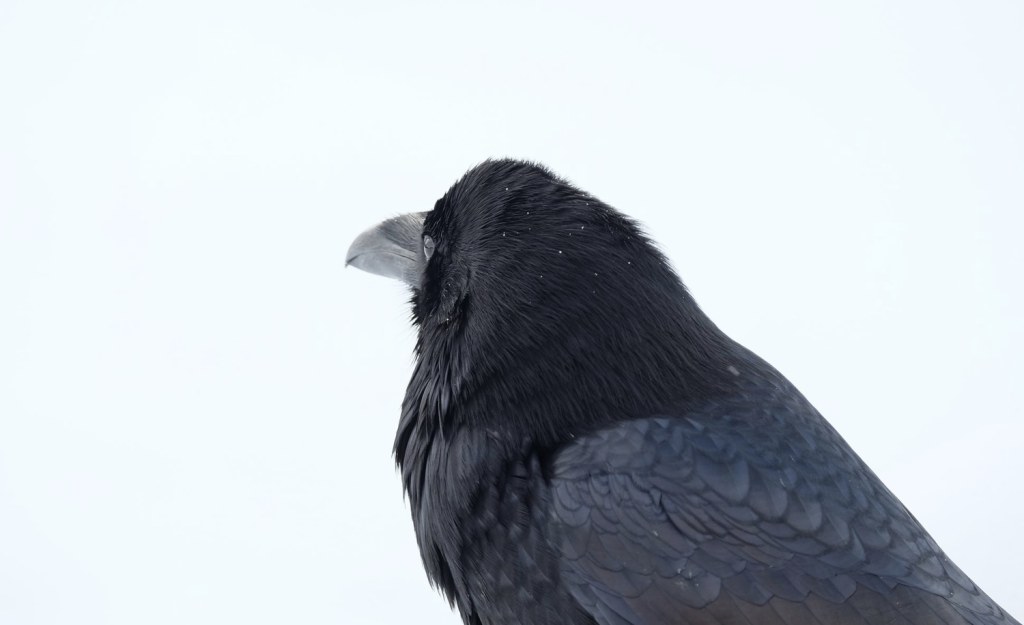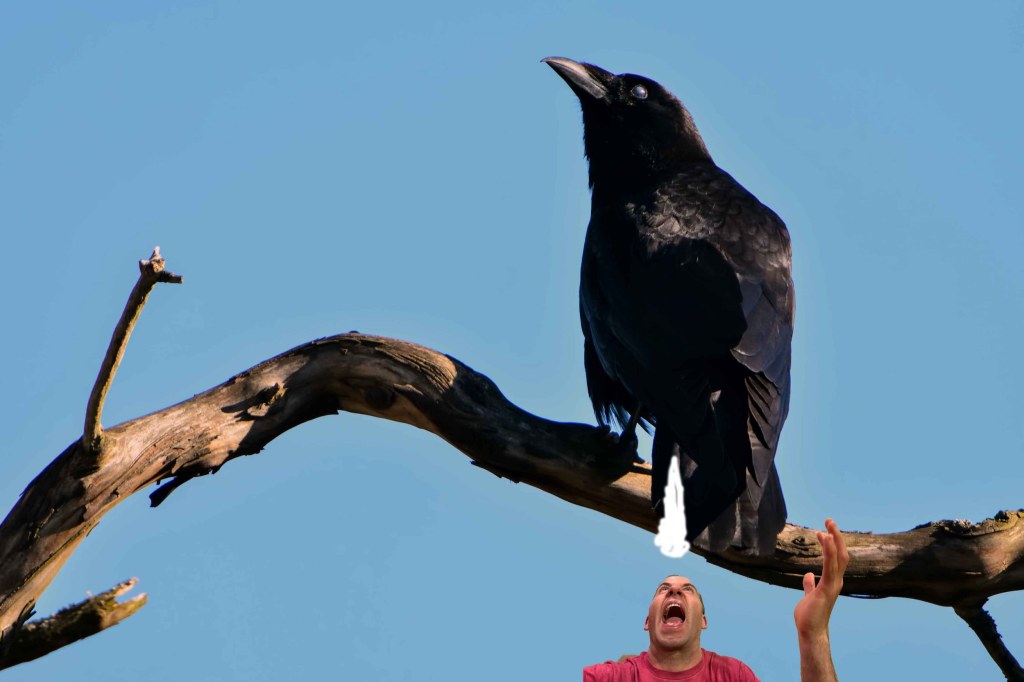Unleash The Power Of Raven Poop: Discover The Secret To Ultimate Garden Growth!
Raven Poop: Unveiling the Secrets of These Dark Droppings
Greetings, Raven Enthusiasts! Today, we are about to embark on an intriguing journey to unravel the mysteries of raven poop. As one of nature’s most fascinating phenomena, raven poop holds valuable insights into the lives of these intelligent and enigmatic birds. In this article, we will delve into the what, who, when, where, why, and how of raven poop, exploring its advantages, disadvantages, and even answering some frequently asked questions. So, sit back, relax, and prepare to be amazed by the world of raven poop!
Table of Contents
What is Raven Poop?
2 Picture Gallery: Unleash The Power Of Raven Poop: Discover The Secret To Ultimate Garden Growth!


Who Produces Raven Poop?
When and Where Can Raven Poop be Found?
Why is Raven Poop Important?

Image Source: explorebigsky.com
How is Raven Poop Formed?
Advantages and Disadvantages of Raven Poop
Frequently Asked Questions (FAQ)
Conclusion

Image Source: squarespace-cdn.com
Final Remarks
What is Raven Poop? 😮
Raven poop, also known as raven droppings or raven guano, refers to the excrement produced by ravens. It is a combination of waste materials, including digested food, metabolic byproducts, and other substances. The appearance and composition of raven poop can vary depending on several factors, such as the bird’s diet and overall health.
Who Produces Raven Poop? 🐦
Ravens, members of the Corvus genus, are the primary producers of raven poop. These large, black birds with distinctive croaking calls are highly intelligent and adaptable creatures. They can be found in various habitats across the Northern Hemisphere, from forests to urban areas. Ravens play a vital role in ecosystems by scavenging carrion and dispersing seeds, contributing to the cycle of life.
When and Where Can Raven Poop be Found? 🌍
Raven poop can be found in places where ravens inhabit, including forests, mountains, coastlines, and even cities. These birds have a wide range and can adapt to various environments, making their droppings prevalent in many locations. Depending on the number of ravens present, the amount of raven poop in a particular area can vary.
Why is Raven Poop Important? 🤔
Although it may seem unconventional, raven poop serves several important ecological functions. Firstly, it aids in nutrient cycling by returning essential elements to the soil. The droppings contain nitrogen, phosphorus, and potassium, which are vital for plant growth. Secondly, raven poop can contribute to seed dispersal, as some seeds can survive the bird’s digestive process and be deposited in new locations. Lastly, studying raven poop can provide valuable insights into the diet, health, and behavior of these birds.
How is Raven Poop Formed? 🤯
The formation of raven poop begins in the bird’s digestive system. After consuming food, the nutrients are extracted and absorbed in the intestines, leaving behind waste materials. These waste materials, combined with other metabolic byproducts, are then eliminated through the cloaca, a multi-purpose opening through which birds excrete waste, lay eggs, and engage in reproductive activities. The result is the familiar dark droppings we commonly refer to as raven poop.
Advantages and Disadvantages of Raven Poop 📚
Raven poop has both advantages and disadvantages, or pros and cons, depending on the context. Let’s explore them below:
Advantages of Raven Poop: 🌱
1. Nutrient Enrichment: Raven poop contains valuable nutrients that can enrich the soil, promoting plant growth and productivity. This is particularly beneficial in nutrient-poor environments.
2. Seed Dispersal: As mentioned earlier, some seeds can survive the digestive process and germinate after being deposited in raven poop. This aids in seed dispersal and contributes to the diversity of plant species.
3. Ecological Balance: Ravens, as scavengers, play a crucial role in maintaining ecological balance by cleaning up carrion and preventing the spread of diseases.
Disadvantages of Raven Poop: 🦠
1. Aesthetic Concerns: Raven poop, like any other bird droppings, can be unsightly and may require regular cleaning, especially in urban areas or locations with high raven populations.
2. Health Risks: While the risk is relatively low, raven poop can potentially harbor bacteria, parasites, or fungal spores that may cause diseases in humans or animals if proper hygiene is not maintained.
3. Crop Damage: In some cases, large concentrations of ravens can cause damage to crops, especially if they feed on agricultural produce. This can lead to economic losses for farmers.
Frequently Asked Questions (FAQ) 🙋♀️
1. Is raven poop harmful to humans?
Raven poop generally poses a minimal risk to human health. However, it’s essential to practice proper hygiene and avoid direct contact to minimize any potential health concerns.
2. Can raven poop be used as fertilizer?
Yes, raven poop can be utilized as a natural fertilizer due to its nutrient content. However, it should be properly composted or aged before application to prevent any potential negative effects on plants.
3. Do ravens intentionally target certain areas for pooping?
Ravens do not intentionally target specific areas for pooping. Their droppings are typically a result of their natural bodily functions and can be found in various locations where they frequent.
4. How can I clean raven poop effectively?
To clean raven poop, use warm soapy water or a suitable cleaning solution. Gently scrub the affected area and rinse thoroughly. It’s advisable to wear gloves and take necessary precautions to minimize direct contact.
5. Are there any laws or regulations regarding raven poop?
The laws and regulations regarding raven poop may vary depending on your location and specific circumstances. It’s advisable to consult local authorities or environmental agencies for guidance.
Conclusion 📝
In conclusion, raven poop is not just ordinary bird droppings; it holds significance in the natural world. From aiding in nutrient cycling and seed dispersal to providing insights into raven behavior, it plays a role in maintaining ecological balance. While it may have its disadvantages, such as aesthetic concerns and potential health risks, understanding and appreciating the value of raven poop can lead to a better appreciation of the intricate relationships within ecosystems.
Final Remarks 🌟
As you venture into the world of raven poop, remember to observe these fascinating creatures with respect and admiration. The information provided in this article is intended to enhance your knowledge and promote a deeper understanding of the natural world. So, continue to explore, learn, and embrace the wonders that surround us!
This post topic: Raven

